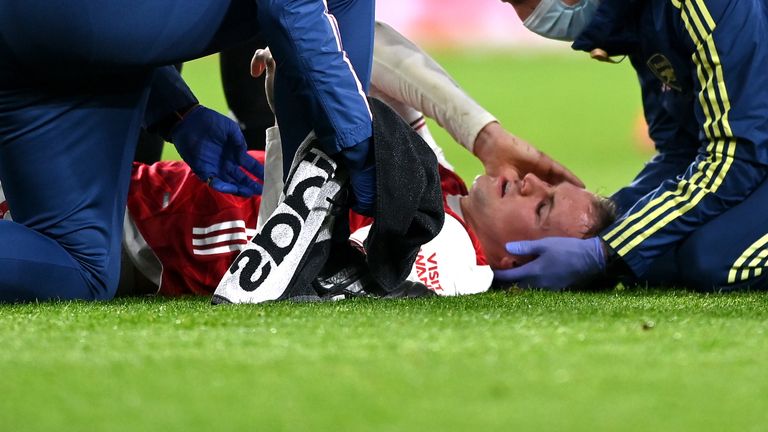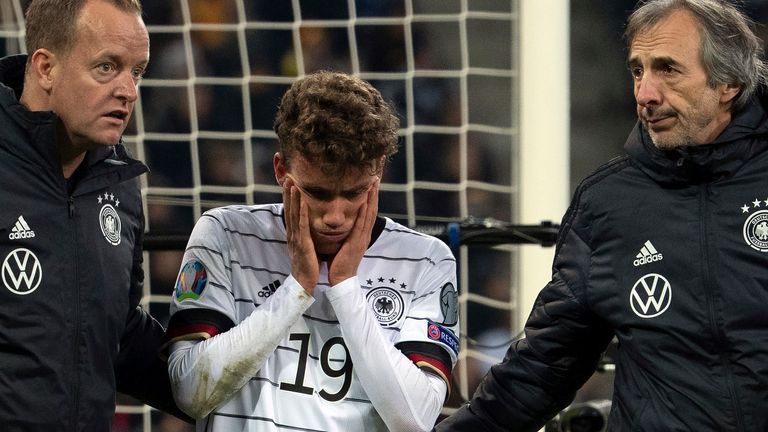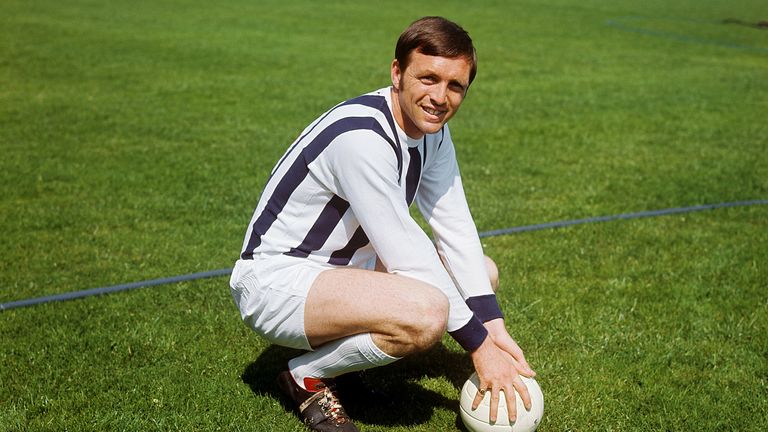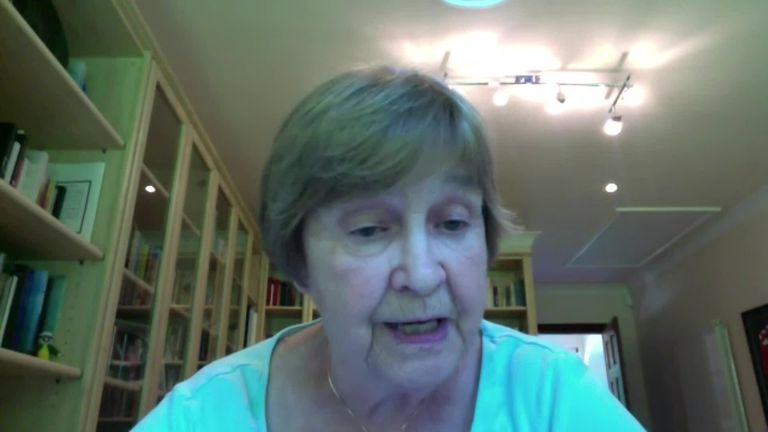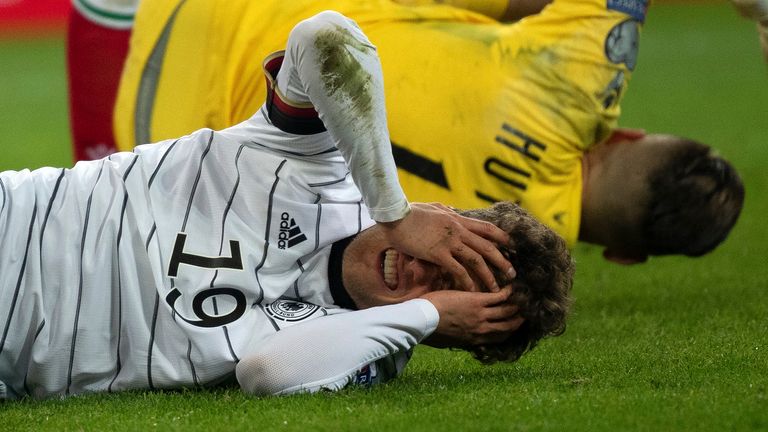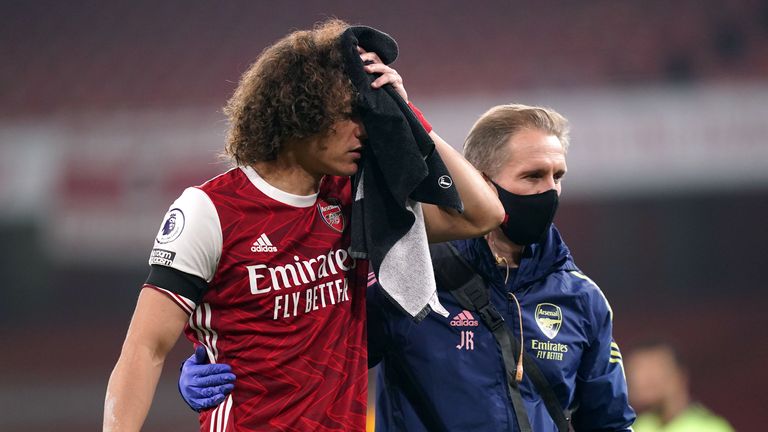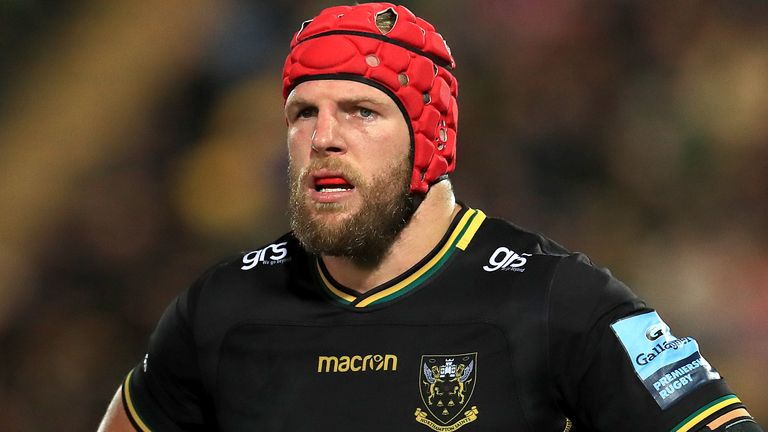Concussion in sport: Urgent government action needed to reduce risks, say MPs
DCMS committee inquiry into concussion in sport examined links between sport and long-term brain injury; It found multiple failings and concluded "urgent action is needed by government and sporting bodies"
Thursday 22 July 2021 13:06, UK
A Department for Digital, Culture, Media and Sport (DCMS) committee inquiry into concussion in sport says urgent government action is needed as sport has been allowed to "mark its own homework".
The report called for the government to oversee the introduction of a coherent UK-wide minimum concussion protocol within the next year, mirroring the approach taken in Scotland.
It also called for the Health and Safety Executive (HSE) to be more closely involved in sport, with committee chair Julian Knight accusing it of a "dereliction of duty" in leaving it to sports to manage risks themselves.
- World Rugby introduce independent concussion reviews
- 'Football's management of concussion a shambles'
The report recommended HSE works with sports organisations to establish a national framework for the reporting of sports injuries by July 2022. Within a year of that, all sports should be required to report any event that might lead to an acquired brain injury.
"The protections afforded by the state to workers apply as much to footballers and jockeys as they do to miners and construction workers," the report said.
"We are astounded that sport should be left by the Health and Safety Executive to mark its own homework."
The report accepted no definitive causal link had been established between playing sport and dementia but said it was "undeniable that a significant minority of people would face long-term neurological issues as a result of their participation in sport".
Knight said: "Frankly to date we have just seen buck-passing and it's complete nonsense.
"We know there is a link between dementia and acquired brain injury and sometimes that happens in sport. It's more likely to happen in sporting environments, therefore what we need to do is mitigate those risks through proper advice.
"We still want people to enjoy the sport they love but be aware of the risk and have as many safety protocols in place as are sensible."
The report also accused the football authorities of taking too long to engage with the issue. It stated the coroner's verdict on former West Brom and England striker Jeff Astle almost 20 years ago should have led to the Football Association taking a "stronger, sustained interest" in the issue.
Astle's death was ascribed to industrial disease linked to the repeated heading of a ball.
"Over the past 20 years neither the Football Association nor the Professional Footballers' Association have fought hard enough, or publicly enough, to address this issue within the broader football community," the report stated.
"They are, however, only part of a broader failure to address the issue of acquired brain injury in sport."
The Professional Footballers' Association - responsible for the safety of current and former footballers - said it took the findings "very seriously" and would continue to work with the sport's stakeholders to implement the report's recommendations.
"We are working on a comprehensive strategy to better address the needs of our former members and their families living with a neurodegenerative condition.
"In the last 12 months, the PFA has started a consultation process with family members of former players and other interested parties to inform the PFA's work in this area, both on and off the field.
"We are fully committed to using our voice and status within the game to drive progress, awareness, and action to support our current and former members. We will continue to fund research and work hard to identify and strengthen protections that can make a difference to players' long-term health."
The report said the government would be central to the drawing up of an over-arching concussion protocol across the UK, and to ensuring it was properly communicated.
"We find it difficult to see any downside of a coherent UK-wide protocol for concussion and recommend that the government look to the Scottish model and then work with the devolved governments in Scotland, Wales and Northern Ireland to develop, in the next 12 months, a UK protocol for concussion across all sport," it said.
"This should be used by national governing bodies as the minimum standard in creating the rules for their sport and should take account of, and be consistent with, the national framework for the reporting of sporting injuries we recommended earlier in this report."
The government is also called upon to help set up a central research fund - where research is "seen to be independent" - and to incentivise sports to contribute by offering a degree of matched funding.
The report said the government had been guilty of a "failure to follow through with practical interventions" in the past, on the back of previous reports.
"We urge the government to grasp the nettle this time, move past the concerns about how regulation may change sports, and take real and effective action," the report said.
Headway: Sport has missed the chance to get its house in order
Brain injury charity Headway has welcomed the findings of the inquiry.
Reacting to the DCMS report, Peter McCabe, chief executive of Headway, said: "This is an important step forward in the campaign to better protect people from the short and long-term risks of concussion.
"We are grateful to the committee for inviting us to contribute to this important inquiry. The report makes a number of clear recommendations, all of which we broadly support, although some questions remain.
"Improved collation and monitoring of data will help us to better understand the extent of the problem, particularly at grassroots level, while governmental support with treatment, the funding of research and education would also be welcomed.
"The committee's criticism of governing bodies in sport is clear. This issue is not new and yet for years sport has been able to play down its significance, with little or no scrutiny from the government.
"For too long it has been left to charities such as Headway to hold sport to account and we agree with Julian Knight that this has to change. Sport has had long enough to get its house in order and the time has come for the government to intervene."
